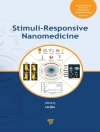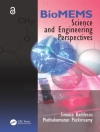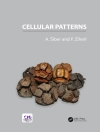Tait and White provide a much-needed introduction to the complex field of critical care nursing for undergraduate and postgraduate students. Covering the essential aspects of critical care nursing, students are asked to consider the biopsychosocial triggers of critical illness, and are walked through a number of different patient scenarios.
Reacting to the Francis Report and other inquiries into standards of care, Tait and White’s humanising approach to critical care places equal emphasis on the ′head, hand and heart′ knowledge; evidence, technical and ethical.
The book’s depth of clinical knowledge is built and cemented through extended case studies of critically ill patients with a variety of needs. This breadth, along with the author’s unique approach prepares students for courses and assignments in critical care, as well as preparing critical care nurses for clinical decision making and practice.
A must-have for anyone studying or working in critical care nursing.
Innehållsförteckning
Humanising Care and Clinical Decision Making in Critical Care – Sara White and Desiree Tait
What Triggers critical Illness? – Desiree Tait and Sara White
Respiratory Failure – Sara White and Fleur Lowe
Haemodynamic Instability – Jonathan Branney and Debbie Branney
Cardiac Failure – Sara White and Fleur Lowe
Acute Kidney Injury – Desiree Tait
Gastrointestinal Disorder – Sara White and Fleur Lowe
Endocrine disorder – Sara White and Fleur Lowe
Neurological damage – Sara White and Fleur Lowe
Legal and ethical issues in Critical care – Mark Gagan and Desiree Tait
The impact of critical illness on recovery and rehabilitation – Sara White and Desiree Tait
Om författaren
Desi Tait is senior lecturer and Year leader for BSc Nursing in the Faculty for Health and Social Care at Bournemouth University. Desi has over 30 years experience in the practice, theory and education of adult acute and critical care nursing and facilitates critical care education at both undergraduate and post graduate levels. She has a particular interest in the use of blended learning strategies in critical care undergraduate education and is involved in developing and evaluating innovative ways to facilitate student learning by adopting a practice based approach to education. Desi completed her doctorate in the study of nurses’ experience of recognizing and managing clinical deterioration in patients in hospital in 2009 and this continues to be an area of clinical interest.












